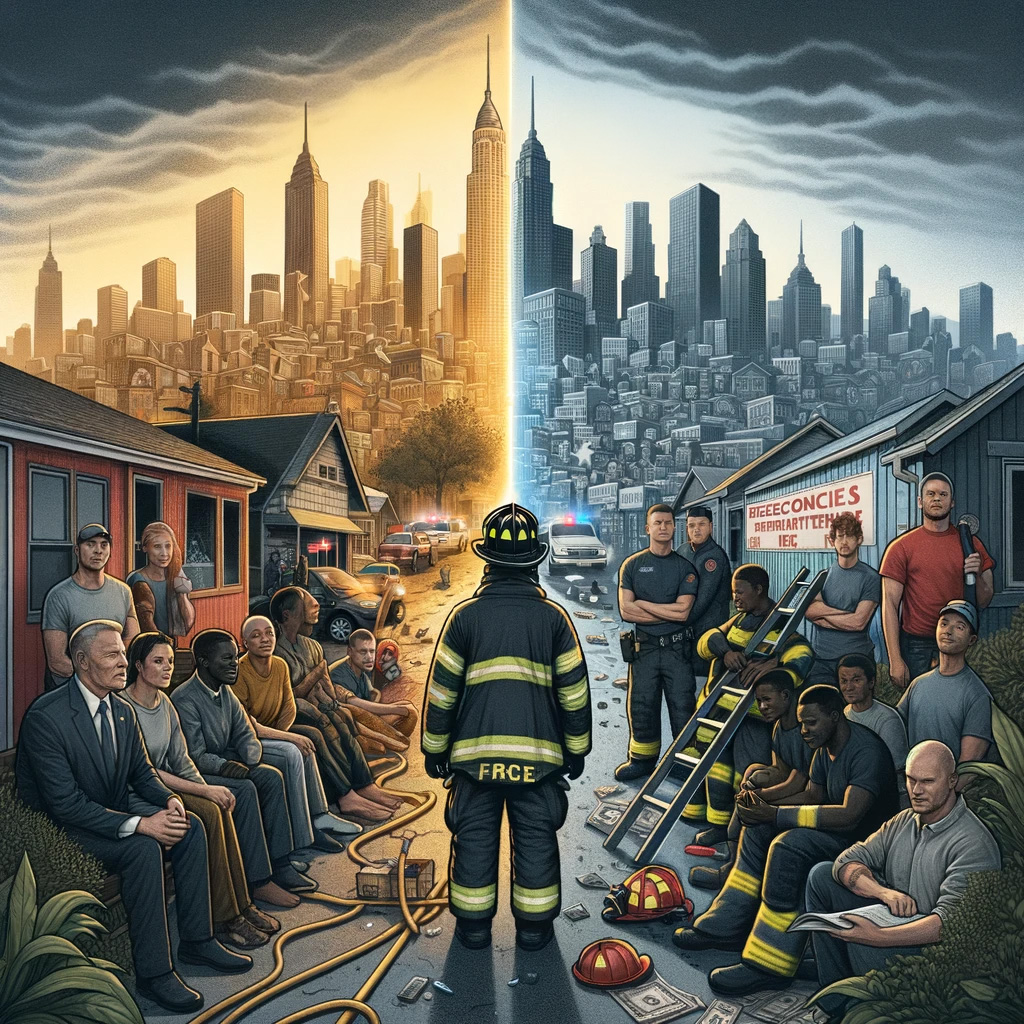Are Socioeconomic Factors Hindering Fire Department Recruiting?

Socioeconomic disparities can have a profound impact on the hiring processes of fire departments, particularly regarding the written testing phase. These disparities, rooted in differences in access to education, resources, and preparatory opportunities, can unintentionally favor candidates from more privileged backgrounds and pose significant barriers to those from lower socioeconomic statuses. This issue not only affects individual candidates but also has broader implications for the diversity and inclusivity of fire departments. Understanding the ways in which these disparities manifest and their consequences is crucial for developing more equitable hiring practices.
Access to Education and Resources
Candidates from higher socioeconomic backgrounds often have access to better-quality education, including schools with more comprehensive curriculums, experienced teachers, and extracurricular opportunities that enhance learning and critical thinking skills. This foundational educational advantage can significantly impact performance on the written tests required in fire department hiring processes, which typically assess literacy, numerical ability, reasoning, and understanding of technical information.
In contrast, candidates from lower socioeconomic statuses may have attended under-resourced schools with larger class sizes, fewer learning materials, and less access to experienced educators. Such educational environments can result in gaps in knowledge and skills, making it more challenging to perform well on standardized written tests.
Preparatory Opportunities
Preparatory courses and materials for fire department written exams can be costly, putting them out of reach for individuals from lower socioeconomic backgrounds. Those who can afford these resources gain a competitive edge by familiarizing themselves with the test format, types of questions, and effective strategies for answering them. Meanwhile, candidates without the financial means to access these preparatory tools are at a disadvantage, potentially impacting their test performance and, consequently, their chances of advancing in the hiring process.
Test Anxiety and Performance
Socioeconomic disparities can also exacerbate test anxiety, which negatively affects exam performance. Candidates from lower socioeconomic statuses may experience heightened stress due to the perceived stakes of the testing process and the lack of a safety net. This anxiety can impair cognitive function, memory recall, and concentration, further disadvantaging these applicants during the written testing phase.
The Impact on Diversity and Inclusivity
The cumulative effect of these socioeconomic disparities on the written testing phase can lead to a less diverse pool of successful candidates, as those from more privileged backgrounds are more likely to advance. This outcome undermines efforts to build fire departments that reflect and understand the diverse communities they serve. A lack of diversity can affect team dynamics, problem-solving abilities, and the overall effectiveness of the department in meeting the needs of all community members.
Mitigating Socioeconomic Disparities in Written Testing
To address these challenges, fire departments can implement several strategies to mitigate the impact of socioeconomic disparities on the hiring process:
- Developing More Inclusive Testing Practices: This can include revising written tests to ensure they accurately assess the skills necessary for the job, rather than reflecting educational or socioeconomic advantages.
- Offering Free or Low-Cost Test Preparation: Providing all candidates with access to study materials, preparatory courses, and practice tests can help level the playing field.
- Implementing Holistic Review Processes: Considering candidates’ entire application, including life experiences, volunteer work, and other relevant skills, alongside test scores can provide a more comprehensive view of their potential as firefighters.
- Community Outreach and Education: Engaging directly with communities, especially those underrepresented in the fire service, to raise awareness about career opportunities and the hiring process can help attract a broader range of candidates.
By acknowledging and addressing the ways in which socioeconomic disparities affect the written testing phase of fire department hiring processes, departments can take significant steps toward more equitable, diverse, and effective recruitment practices. These efforts not only benefit individual candidates but also enhance the fire service’s ability to meet the needs of the communities they serve.
